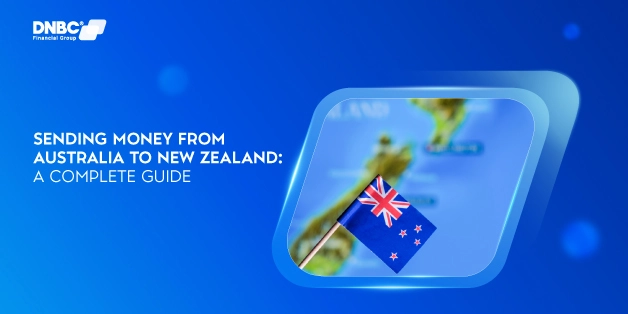- Home
- Blog
- Personal Finance
- Anti Money Laundering Policy Sample for Businesses
Anti Money Laundering Policy Sample for Businesses
Personal Finance
14 December 2023
DNBC Team
This article is a part of DNBCGroup Blog Center
Contact DNBCGroup for the technology news, tips, trends, and updates.
In the evolving financial landscape, businesses face increasing threats from money laundering activities. It's essential to implement an anti-money laundering (AML) policy to safeguard your organization.
This policy acts as a shield against financial risks, protects your business's reputation. Besides, it also ensures your business's compliance with regulatory requirements.
This blog will explore what is AML policy, and why a strong AML policy matters. It will also equip you with the knowledge to create an effective AML policy template.
What is an anti-money laundering policy?
An AML policy is a cornerstone framework adopted by financial institutions worldwide. Its primary objectives include three crucial functions:
- Identify transactions or activities exhibiting potential money laundering signs promptly.
- Implement measures to prevent the flow of illegal funds into the financial system.
- Assess and manage the risks posed by potential money laundering activities.
An AML policy should be tailored to each company. It depends on the company's characteristics, size, and operational complexity. It should be a reflection of the level of money laundering risk faced by the entity. Furthermore, it must comply with all applicable laws and regulations in relevant jurisdictions.

An AML policy should be tailored to meet the specific needs of a company
By doing so, the company can identify and mitigate potential money laundering risks. While it still can maintain compliance with legal requirements.
Why is anti-money laundering policy important?
An AML policy is not just a regulatory obligation. It's a strategic imperative for businesses that prioritize:
Financial Protection
Money laundering activities can expose your business to various financial risks. It includes losses from fraud and illegal activities.
Regulatory bodies can impose heavy penalties for businesses with AML non-compliance. These fines can significantly impact your financial health.
Therefore, an AML Policy is important to protect the company's financial stability.
Reputational Safeguard
Money laundering activities can tarnish a company's reputation and erode customer trust.
An AML policy demonstrates a company's commitment to ethical practices. It helps maintain a positive image, fosters trust among customers, partners, and stakeholders.

An AML policy helps foster customer’s trust
Regulatory Compliance
An effective AML policy ensures a company adheres to all relevant AML regulations. This can help to minimize the risk of legal repercussions and sanctions.
Failing to comply with AML regulations can lead to operational disruptions. They can even include investigations and potential business closures.
How to create an anti-money laundering policy template?
Creating an AML policy template is essential for organizations. Here are steps to guide you in creating an effective AML policy:
Step 1: Define the policy's purpose and scope
- Clearly state the objectives and reasons for creating the AML policy.
- Outline the specific areas and activities within your organization that the policy covers.
Step 2: Appoint an AML Officer
- Designate an AML officer or team responsible for overseeing and implementing the policy.
- Define their roles, responsibilities, and authority within the organization.

Appointing an AML officer is a crucial step for crafting an AML policy template
Step 3: Conduct Risk Assessment
- Identify and assess potential money laundering risks associated with your business activities.
- Analyze customer profiles, transaction types, geographical regions, and other relevant factors.
Step 4: Establish Risk Mitigation Measures
- Implement Customer Due Diligence (CDD): Verify customer identities and assess risk levels.
- Implement Enhanced Due Diligence (EDD): Apply additional scrutiny to higher-risk customers or transactions.
- Set up continuous transaction monitoring systems to detect and report suspicious activities.
Step 5: Define Roles and Responsibilities
- Clearly define the responsibilities of employees, compliance officers, and management.
- Ensure that everyone understands their role in preventing money laundering.
- Provide training and guidance for identifying and reporting suspicious activities.
Step 6: Customize the Policy
- Tailor the policy to fit your company's unique characteristics. Consider the company's size, business model, and geographical reach.
- Avoid a one-size-fits-all approach. The specific risks and mitigation strategies will vary depending on the company's operations.
Step 7: Ensure Legal Compliance
- Align the policy with relevant AML laws and regulations in your operating jurisdictions.
- Regularly update the policy to reflect any changes in laws or regulations.
Step 8: Implement Ongoing Monitoring and Review
- Establish procedures for regular review and updates of the AML policy.
- Conduct periodic audits to assess the effectiveness of the policy and ensure compliance.
Step 9: Documentation and Training
- Document all AML-related procedures, processes, and policies comprehensively.
- Provide ongoing training and awareness programs for employees to ensure understanding and compliance.

The company should ensure provide ongoing training and awareness programs for employees
Step 10: Reporting Mechanisms
- Establish clear and confidential channels for reporting suspicious activities or concerns.
- Define escalation procedures for handling reported issues appropriately.
Step 11: Continuous Improvement
- Foster a culture of continuous improvement in AML practices within the organization.
- Regularly review and adapt the policy to address emerging money laundering threats.
DNBC implements a stringent AML policy
DNBC is a trusted partner for international money transfers, offering both personal and business services. We implement a stringent AML policy, reinforcing our commitment to integrity and trustworthiness.
At DNBC, we recognize AML's importance in protecting the financial system and society. By choosing DNBC for global money transfers, you can rest assured that your funds are secure. You also contribute to a global financial landscape built on honesty and accountability.
Contact us today for a free consultation on international money transfers.
Your Trusted Partner
In your Digital
Journey
Free 1 - on -1 support
Free account opening fees
No hidden fees
Note: The content in this article is for general informative purposes only. You should conduct your own research or ask for specialist advice before making any financial decisions. All information in this article is current as of the date of publication, and DNBC Financial Group reserves the right to modify, add, or remove any information. We don’t provide any express or implied representations, warranties, or guarantees regarding the accuracy, completeness, or currency of the content within this publication.
Related posts

Difference Between Transit Code and SWIFT Code: Explained Simply
01 October 2025

Swift Code vs Routing Number: What You Really Need to Know
01 October 2025

How to Use a Transit Code for Smooth Transfers
01 October 2025

What Happens If Someone Has Your BSB and Account Number?
01 October 2025

Sending Money from Australia to New Zealand: A Complete Guide
01 October 2025